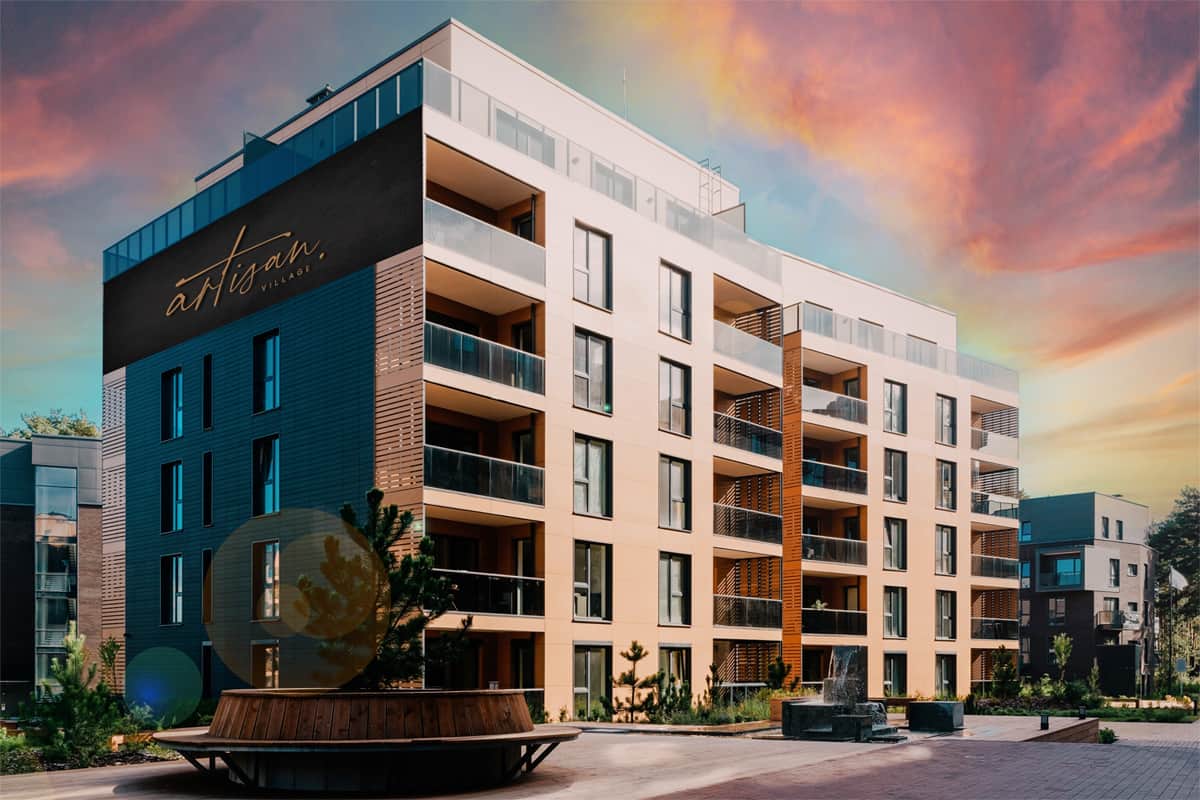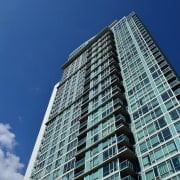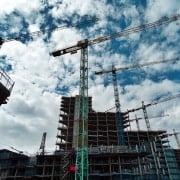MarketSpace Capital – A.CRE Real Estate Sponsor Series
Here we feature MarketSpace Capital in the third article of a new series at A.CRE, our Real Estate Sponsor Series. This series aims to catalog the various real estate investors across the country. For this article, we interviewed Sohail Hassan, a Managing Partner at MarketSpace Capital. Read below to learn all about MarketSpace Capital: its history, its investment strategy, its exciting projects, and more!
Note from Spencer and Michael: This is another post in our series on Real Estate Sponsors. Through interviewing a variety of individuals involved in real estate investing about their specific firms, this series aims to create a catalog of the various real estate sponsors throughout the country. This post is not investment advice nor does A.CRE endorse/recommend any sponsor in this series. The series is provided for informational purposes only. A huge thank you to Sohail for sharing his knowledge with the A.CRE community!
We’re currently looking for Real Estate Professionals involved in CRE sponsorship to talk about their firm and make more articles like these. If you’re interested, please contact us at [email protected].
About MarketSpace Capital
MarketSpace Capital is a private equity real estate development firm headquartered in Houston, Texas. They primarily focus on the acquisition and ground-up development of multifamily properties.
It was founded by Dr. Masaki Oishi, David Rodarte, and Sohail Hassan. David and Dr. Masaki met in 2009 and then made their very first investment together in 2011. Sohail then met them in 2017. At this time, they decided to take the company to the next level and formed MarketSpace Capital.
Around 2018–2019, they started by investing in retail and office assets, which are largely dependent on the dynamics of the Houston market. Houston relies heavily upon the oil and gas market, so when oil is not doing well the market is not doing well and office is not doing well. Taking that into consideration is important. In addition, shopping is also going digital, so much so that normal retail is dying, leading MarketSpace Capital to focus more on service-oriented retail businesses, particularly those related to the medical industry.
Of the 23 Investments MarketSpace Capital has gone full cycle on, 15 of them were able to generate an investor level IRR of 31%.
The Team
David Rodarte has been working in real estate his entire career. He started fixing and flipping homes and then worked his way into commercial and is now focused on multifamily. He leads the financial analysis as well as oversees our renovation strategy.
The second partner and chairman, Dr. Masaki Oishi, is actually a practicing physician in the Houston area. He’s a full-time physician but has also been investing in real estate since he was 16 years old, so he is very experienced when it comes to investing in real estate.
The third partner is Sohail Hassan. He joined the team after coming out of an exit from another company. Looking to deploy capital and create generational wealth, he started looking into real estate, specifically the multifamily asset class, and subsequently met David and Dr. Masaki.
In addition to the three partners, MarketSpace Capital has five additional team members: Thomas Mathew, Vice President of Acquisitions; Kevin Sabouni, Director of Asset Management; Taylor Stinnett, Director of Operations-Dallas; Josh Leonhard, Market Analyst; and Josh King, Director of Capital Markets.
MarketSpace Capital’s Investment Thesis
MarketSpace Capital has three verticals. The first vertical is around the value-add strategy of acquiring existing assets that have been neglected. A lot of that in the Houston area tends to be from owners that are out of state and are thus relying on third-party party property managers to deliver results and, unfortunately, are unable to do so.
The second vertical is building ground-up developments, and the third vertical is mixed-use developments.
Sourcing Capital
Dr. Masaki Oishi is very passionate about educating other physicians on the benefits of investing in real estate. He’s written a book called Prescribing Real Estate: A Doctor’s Guide to Commercial Real Estate, and he’s a speaker on the circuit. As a result, MarketSpace Capital has developed a strong network of high-net-worth physicians from across the country who invest in their projects.
Because of this, a lot of their educational materials are directed toward a physician audience. About 71% of their investors are physicians, so when they saw a project in Dallas that’s directly adjacent to the Dallas Medical Center, it was an easy selling point for their audience. Their ground-up development in Houston is also only 12 minutes away from the Texas Medical Center. This is a feature they often look for in their deals as a selling point for their investors.
How MarketSpace Capital Exits
MarketSpace Capital usually models a three-to-five-year hold. When they acquire these properties, the first year is just for stabilization. Getting the bad tenants out and bringing the good tenants in is the first step. In addition, because these leases are at least a year-long, it takes 12 to 18 months to fully renovate the property. Those leases will be up at different times and, to accomplish their business plan, 10 to 15 of the units every month must be renovated. This means that they don’t get revenues from 10 to 15 of those units.
Then around months 18 to 24, MarketSpace Capital seeks to refinance the asset once it has been stabilized. Around this time, there’s a cash-out refinance for the investors. The cash flows they requested for a couple of years will then provide distributions to their investors consistent with their expectations, at which point if market conditions are favorable, they will seek to exit the asset. For all these reasons, MarketSpace Capital typically does a three-to-five-year hold.
Projects
Sohail told us how they were lucky enough to exit out of their last asset before COVID-19 hit. They were fortunate to do so because the retail and office asset classes were hit the worst during the pandemic. The multifamily asset class, however, was the most resilient. It further reinforced MarketSpace Capital’s investment philosophy, and since then they have been laser-focused on multifamily.
MarketSpace Capital also makes four to six acquisitions per year and manages between twenty-five hundred and thirty-five hundred units at any given time. On the value-added side, that equates to approximately 350 million dollars in assets under their management. In addition, around 2019–2020, they started getting into the ground-up development side of the business.
They did their first ground-up development in the Houston area with 155 units. It’s about a 25-million-dollar project. They kicked off construction in late 2020. So, this is their first project where it’s gone through the full cycle, from bringing in the engineering, the design, and the construction, all the way through delivery. Sohail told us they were excited about that and, around then, they started spending a lot of time in the Dallas market, understanding that it had been one of the best-performing real estate markets in the country over the last decade.
Through this they found this site that’s directly adjacent to the Dallas Medical Center. The site actually used to be a parking lot for the medical center. There’s lots of visibility; about 280,000 cars drive by this thing every day. They bought the land in May 2020, during the middle of COVID-19. They then spent a year getting the design and kicked off construction in August 2021. They’re now about 40% through the construction process.
MarketSpace Capital’s Artisan Village
As previously mentioned, MarketSpace Capital’s third vertical is mixed-use development. This is really comprised of just one enormous project that they’re calling the Artisan Village. The Artisan Village is a project that’s repurposing a shopping mall that’s located in Cincinnati, Ohio.
This shopping mall, once called the Tri-County Mall, was going through what a lot of shopping malls across the country are going through: big boss retail shutdown. The mall had 97 occupants when they acquired it in March 2022. It had 18 tenants who had all gone out of business, so the city’s malls had been sitting empty for the last ten years. Even though the mall was still open and had a Foot Locker, Cinnabon, and other stores, they were looking for developers such as MarketSpace Capital to come in and repurpose it. To do so, they created incentives to the tune of $200 million in the form of tax increment financing. This TIF will do the work no developer would otherwise spend money on because it would simply kill the deal’s returns.

A partial mock-up of Artisan Village
MarketSpace Capital acquired the shopping mall and shut it down on May 15th of 2022. The mall had over 3,200 parking spaces made up of two structured parking garages. Since it had the infrastructure in place, MarketSpace Capital is now looking to repurpose the shopping mall into 26,600 multifamily units. This is an enormous project that’s nearly the size of their entire portfolio.
The project also has been tokenized, being the first ground-up multifamily development project in the country that has been tokenized.
Tokenization
Tokenization is a method that uses blockchain technology. You may be familiar with the blockchain because of cryptocurrencies like Bitcoin and Ethereum. The technology behind that has been included in lots of industries, and real estate is no different.
MarketSpace Capital raised eight million dollars in limited partner equity for this project. They then went back and tokenized. About two years ago, they started spending a lot of resources on studying the subject and the potential impacts it could have on the real estate sector. They decided to use this project in Dallas as the very first case study of how it would work.
In a traditional investment, you’ll sign an agreement for fifty thousand dollars of investment that says you own the underlying parts of the LLC that owns that project. In this case, you’re held to that partnership agreement until there’s a liquidity event like a refinancing scenario or an exit. With the same scenario with tokenization, you would invest with MarketSpace Capital, and they instead introduce 15,000 tokens. You store these tokens in a digital wallet, like a Charles Schwab account, with one token equaling one US dollar. MarketSpace Capital uses something called a stablecoin, so no fluctuation or volatility is inherently involved with Bitcoin and Ethereum. Therefore, those 50,000 tokens equal $50,000 and that’s your investment. Then after 12 months, you can take those tokens and they become unrestricted, meaning you can start selling them on a secondary market.
This accomplishes two things: first, it adds liquidity to something that would otherwise be inherently illiquid. After 12 months, if you need to get out of that investment, you can sell. Second, it lowers the high cost of entering these real estate investments. MarketSpace Capital’s deal requires a minimum investment of $50,000, after which you can fractionalize and sell on the open market. Now somebody else who maybe can’t afford fifty thousand can come and make you an offer, and you could sell five thousand of your tokens. It’s an innovative approach to the industry, and something they firmly believe is going to be the standard over the next decade or so. This project acts as a case study to understand the implications and overall benefits and drawbacks of structuring an investment in this way.
Risks Common to Multifamily Investments
The multifamily asset in real estate is perhaps the least risky investment that you can make, according to MarketSpace Capital. It doesn’t have the volatility of what the soft stock market does, for example. It’s safer and more tangible.
On the contrary, MarketSpace Capital is currently staying away from retail and office assets because those assets are facing challenges. There were retail shopping centers where tenants didn’t pay rent for three months, for example. The opposite occurred in 2020 for MarketSpace Capital, however. It had its best year ever in terms of rent collections and they attributed that to stimulus payments.
Though the multifamily asset class within the real estate sector is less risk-averse, all investments come with risk. Overall, however, the Texas market has seen an expansion—particularly in Houston and Dallas. Nearly 250 people moved to the city of Houston every single and those people need a place to live. Since there is a shortage of housing, when units become available, MarketSpace Capital never had an issue with leasing them.
Current Market State
Even with the state of the economy right now, MarketSpace Capital is still very active in the market. In 2022, they closed on 736 units in the Houston area and another 122 units in the Dallas area.
They believe that interest rates should not make or break a deal. If they do, that probably means the deal didn’t pencil out in the first place. Designed for times like this, MarketSpace Capital always underwrites a best-case scenario and a worst-case scenario. In the worst-case scenario, they model what the deal would look like with higher interest rates. Right now happens to be a time with a higher interest rate and they are raising additional equity as insurance.
MarketSpace Capital’s goal is to buy these properties now even though they’re not used to paying the rates right now. Most of their purchases are Class E assets, which are not stabilized, so they’re going to reserve and plan for the first year and a half anyway.
Conclusion
When asked what he wanted to share with our readers, Sohail chose to recommend the Texas market for real estate. Texas is now one of the hottest markets in the country. Texas and Florida were the biggest beneficiaries of the exodus of people moving away from the pandemic. MarketSpace Capital says they’re blessed to just happen to be in a market that’s on the upswing. Sohail also stressed how exciting tokenization is and how it really sets them apart from other Real Estate Sponsors.








